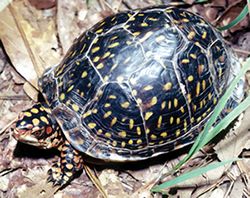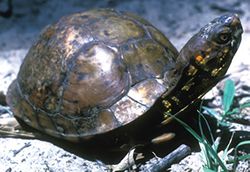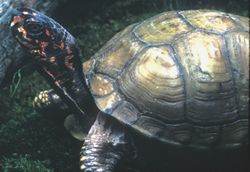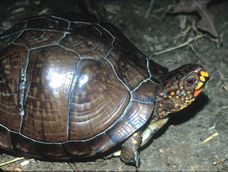Eastern Box Turtle (Terrapene carolina)
- Other Names
- Three-toed Box Turtle
- Description
- The carapace of the Eastern Box Turtle is noticeably longer than wide, domed with a narrow keel lengthwise down the center, and has some flaring at the rear edge. The tallest point of the shell is well back towards the tail, so viewed sideways it'll be tallest at the back of the turtle. The carapace is light brown to tan with a few dark flecks on it. The plastron is normally solid yellow without any markings, although the edges individual plates may be dark. Orange, yellow or red spots sometimes visible on head and forelegs. The subspecies in Texas (triunguis) almost always has three toes on each hind foot.
- Habitat
- Box turtles are "dry-land" turtles and may be found far from a water body. Eastern box turtles are primarily a woodland species, although they may also be found along forest edges and brushy fields
- Distribution
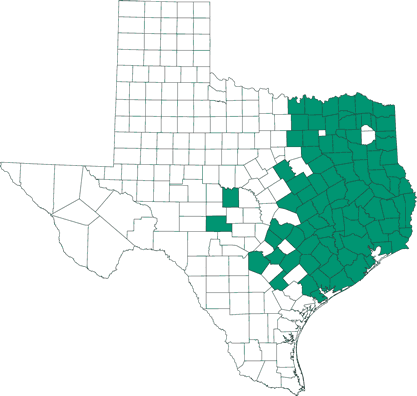
- How You Can Help
- To help with the Box Turtle monitoring project, please join and contribute observations to the Herps of Texas iNaturalist project.
For more information
- For additional details on Box Turtles, visit Missouri's Two Box Turtles web page.
